voestalpine Schienen
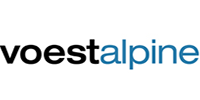
Visiting address
Kerpelystrasse 199
8704
Leoben/Donawitz
Postal address
Kerpelystrasse 199
Leoben/Donawitz , 8704
Contact person
Stefan GlanzJoin our community for FREE today!
Create and share your own profile
Join the discussions
Publish your own items
Subscription to our Weekly eNewsletter
Get connected with Mass Transit Professionals Worldwide
FREE membership benefits
- * create and share your own profile
- * join the discussions
- * publish your own items on Mass Transit Networkmanage news, jobs, tenders, companies, events, showcases, educations, associations and literature.
- * subscribe to our eNewsletter
Company information
Responsibility the principle, rails the system

As European market leader and innovation pioneer with a worldwide reputation, voestalpine has played a decisive role in the development of modern railway rails. Building on this competence advantage we exclusively produce rail products of the highest quality and launch new problem solutions on an ongoing basis in the markets.
Sustainable and measurable customer benefit by a significant increase of the track performance, while the life-cycle costs are considerably reduced, is at the core of all our activities.
For this purpose we combine leading edge technology with decades of experience and comprehensive system competence, thus offering our customers worldwide an outstanding benefit package.
Company information
8704 Leoben/Donawitz
Austria
Solutions
- Maintenance
- Rails
Product information
Ultra-long rails
The triumph of the ultra-long rail
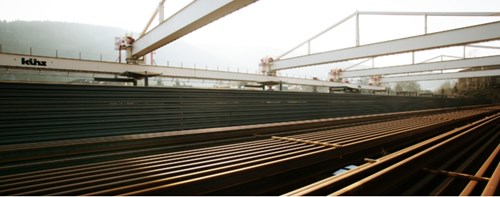 voestalpine was the first company in the world to recognize the superior customer benefit potential of ultra-long rails and to implement it in terms of product and production technology after several years of pioneering work. With the knowledge they lower the welding expense and maintenance cost and last but not least reduce weld-induced track defects, ultra-long rails have already become the standard laying length in many countries.
voestalpine was the first company in the world to recognize the superior customer benefit potential of ultra-long rails and to implement it in terms of product and production technology after several years of pioneering work. With the knowledge they lower the welding expense and maintenance cost and last but not least reduce weld-induced track defects, ultra-long rails have already become the standard laying length in many countries.
Nevertheless: with a weld-free supply length of 120 m for land transport and up to 60 m for sea transport (depending on the capacities of the port of destination) voestalpine’s offering is still unsurpassed.
Heat treated rails (HSH®)
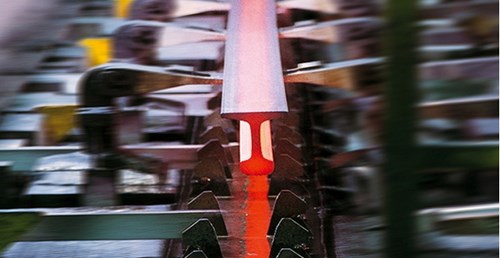 Based on the technological experience gained over decades and our particular life-cycle cost competence we are and remain ahead of the competition.
Based on the technological experience gained over decades and our particular life-cycle cost competence we are and remain ahead of the competition.
Not only that we can heat-treat practically any, even most complex rail profile. We also offer a specific solution for each rail traffic mode and supply – as the only producer worldwide – heat treated rails in ultra-lengths up to 120 m.
Numerous track tests in cooperation with diverse railways and local transport operations worldwide confirmed that heat treated rails generate a multiple extension of the period of usage. The same effect verifiably applies to rolling contact fatigue of rails: heat treated rail steels demonstrate a significantly greater resistance to crack formation.
Hence the direct costs of maintenance as well as the indirect costs (“non-availability costs”) can be drastically scaled down.
350HT HSH®
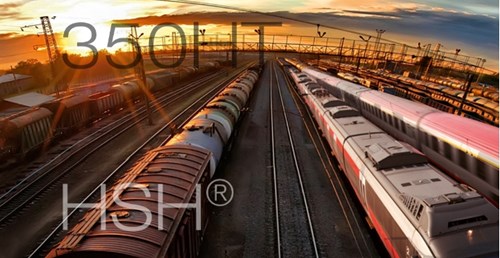 The field of application of the 350HT HSH® rail includes all areas of mixed traffic and the light rail sector. This steel grade is well suited both for use with light axle loads and medium speeds (metro, rapid transit systems), medium axle loads (mixed traffic) as well as for high-speed traffic.
The field of application of the 350HT HSH® rail includes all areas of mixed traffic and the light rail sector. This steel grade is well suited both for use with light axle loads and medium speeds (metro, rapid transit systems), medium axle loads (mixed traffic) as well as for high-speed traffic.
The superb track performance of the rail steel grade 350HT HSH® is proven through the Innotrack project – carried out by leading European rail infrastructure operators and superstructure industries under the umbrella of UIC and UNIFE. Here in comparison to the as-rolled R260 standard grade the following improvements have been confirmed:
- Threefold higher resistance to wear and formation of corrugation
- Threefold higher resistance to rolling contact fatigue (RCF) due to later crack initiation and slower crack propagation
The benefits resulting from this are:
- Halving rail maintenance costs
- Tripling the operational rail service life time
- 50% reduction of the life-cycle costs (LCC)
This led to the recommendation to implement R350HT rail steel grade in curves with radii of up to 5.000 m.
400 UHC® HSH® Mixed Traffic
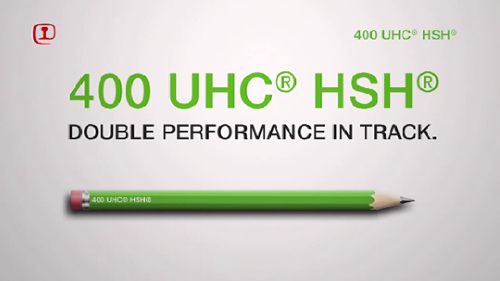 The hyper-eutectoid heat treated rail grade 400 UHC® HSH® has already perfectly proven its worth around the globe under extreme conditions. Its excellent suitability for heavy loaded mixed tracks has also been confirmed in the EU project “Innotrack” (www.innotrack.eu).
The hyper-eutectoid heat treated rail grade 400 UHC® HSH® has already perfectly proven its worth around the globe under extreme conditions. Its excellent suitability for heavy loaded mixed tracks has also been confirmed in the EU project “Innotrack” (www.innotrack.eu).
Unlike ordinary heat treated rail steel grades, 400 UHC® HSH® features an increased carbon content, which also accounts for the brand name UHC® (“Ultra-High-Carbon“). The micro-structure remains 100% perlitic and is produced on the basis of an ecologically aware low-alloy concept which also enables proper weldability. The result is a resistance to wear, corrugation and rolling contact fatigue (RCF) unmatched up to now in European mixed traffic applications.
TSI certification including high-speed traffic is already obtained. Also, delivery can take place Europe-wide in weld-free lengths up to 120m.
The improvements achievable when compared with the heat treated grade R350HT are:
- Twofold higher resistance to wear and formation of corrugation
- Twofold higher resistance to rolling contact fatigue (RCF) due to later crack initiation and slower crack propagation
The benefits resulting from this compared to R350HT are:
- Halving rail maintenance costs
- Doubling the operational rail service life time
- Further and significantly reduced life-cycle costs (LCC)
Win with a proven track record, immediate supply availability and superior life-cycle economy – 400 UHC® HSH® Mixed Traffic.
400 UHC® HSH® Heavy Haul
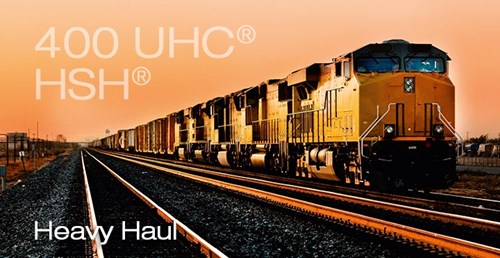 The high-strength 400 UHC® HSH® rail grade has been very successfully used for years in tracks with extreme loads all over the world (especially in heavy haul transport with axle loads over 30 tons) and has become the standard grade both for curves and for straight track.
The high-strength 400 UHC® HSH® rail grade has been very successfully used for years in tracks with extreme loads all over the world (especially in heavy haul transport with axle loads over 30 tons) and has become the standard grade both for curves and for straight track.
Long-term worldwide operational experiences of heavy haul railways as well as joint track tests with customers and also in test centres confirm the excellent characteristics of this rail grade.
The operational performance of this rail grade is characterized by:
- Highest resistance to wear of all pearlitic rail steels
- Maximum resistance to formation of corrugation
- Highest resistance to rolling contact fatigue
The benefits resulting from this are:
- Remarkable reduction of rail maintenance costs due to excellent track performance
- Significant multiplication of the operational rail service life time compared to other rail grades
- Lowest life-cycle costs in heavy loaded tracks
Heat treated grooved rails
The premium trio of choice: HSH® GM-CL, HSH® GM and HSH® G
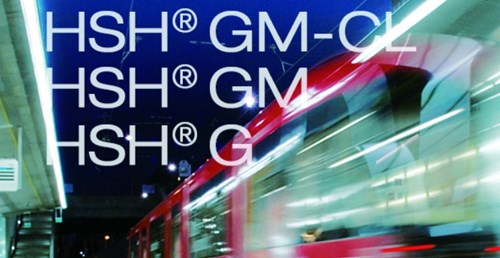 The application area of HSH® grooved rails is primarily in curves of tramway tracks, stations and steep inclines, in which abrasive wear is the predominant damage pattern.
The application area of HSH® grooved rails is primarily in curves of tramway tracks, stations and steep inclines, in which abrasive wear is the predominant damage pattern.
By HSH® heat treatment of grooved rails, a fine-pearlitic microstructure with maximum wear resistance is generated, without any need for changing the chemical composition. Depending on the maintenance strategy of the tramway operator, there is a choice between the grades HSH® GM and HSH® GM-CL that permit deposit welding in track, or the grade HSH® G, which follows the so called “put-in-and-forget” strategy, without re-profiling by deposit welding.
Compared to as-rolled or Vanadium micro-alloyed grooved rails, the operator gains the following advantages:
- Longer total service life time of all HSH® grooved rails
- HSH® GM and HSH® GM-CL:
- Significant extension of the duration until the first deposit welding
- Deposit welding is done without pre-heating according to the welding recommendation of voestalpine Schienen
- HSH® G: worldwide highest wear resistance among all commercially available grooved rail steels (“put-in-and-forget” strategy)
A global innovation: the new grooved rail HSH® GM-CL
- Deposit welding as simple as with rail grade R200
- Wear resistance as high as with rail grade R290GHT (HSH® GM)
Based on the standardised rail grade R290GHT (HSH® GM), which is suitable for deposit welding, voestalpine Schienen has now successfully achieved a further optimisation. The new grooved rail HSH® GM-CL (= Carbon Low) with its guaranteed C-content of maximum 0.50 % offers ideal metallurgical conditions for deposit welding in track. The specific adaptation of the heat treatment process exactly to this alloying concept results in a hardness of about 300 BHN in the running and the guiding head.
Logistics
Fast ways to the customer
 Our logistics department guarantees smooth rail delivery to its destination by optimization of the entire logistics chain. Our specialties are just-in-time deliveries of 120 m long rails to any construction site in Europe as well as long rail deliveries (60 m) overseas.
Our logistics department guarantees smooth rail delivery to its destination by optimization of the entire logistics chain. Our specialties are just-in-time deliveries of 120 m long rails to any construction site in Europe as well as long rail deliveries (60 m) overseas.
Rail welding
Simple and accurate
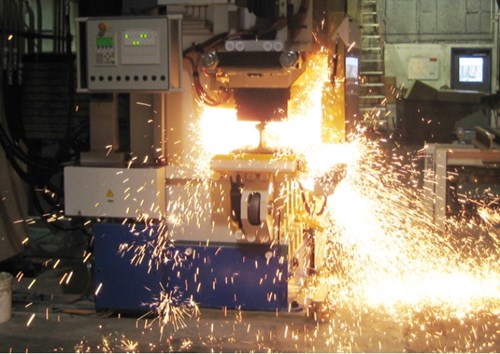 New rail steels have to be, besides excellent track performance, easily and in-track weldable.
New rail steels have to be, besides excellent track performance, easily and in-track weldable.
voestalpine Schienen GmbH involves welding technology right from the start in the development of new rail steels. This ensures approved and save welding technology at the product rollout.
The voestalpine Schienen welding services go far beyond the necessary and focus directly on the customers’ needs and wishes on-site, the programing of flash-butt welding machines for example.
Competence Center Welding
The new driving force
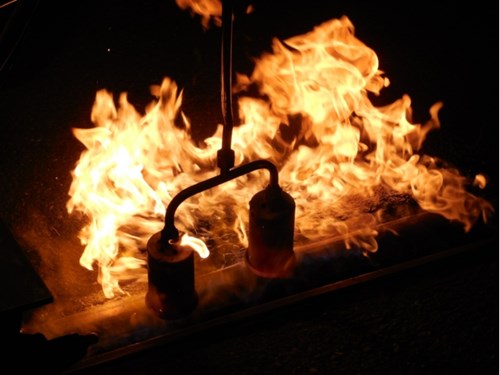 To serve our customers even better than we have done in the past, we go one step further and invest in a Competence Center Welding (CCW).
To serve our customers even better than we have done in the past, we go one step further and invest in a Competence Center Welding (CCW).
The CCW is equipped with R&D welding capacity for all welding processes (flash-butt, stick, filler-wire, aluminothermic, shielded arc). Thus the future development of welding procedures for new and existing products can be co-steered by voestalpine. For the development and homologation of aluminothermic welding solutions we intensify the cooperation with our reliable partners.
Our existing, accredited laboratory for testing and homologation of welding procedures and weld defect analysis will be equipped with the appropriate testing devices and capacities.
Cooperations with welding companies, universities and independent experts are supervised in the CCW as well as the own welding development. Customer presentations and workshops, welding demonstrations and welder trainings complete the CCW portfolio.
Pre-bending rails
We bend clothoids”
T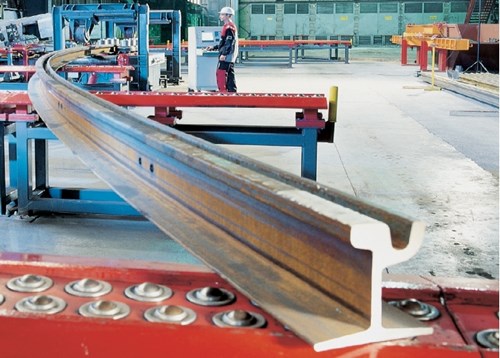 o ensure the most efficient progress of construction works, all customer requirements are considered in advance, when the shop drawing is established. The version with satellite pictures is a novelty though already standard at voestalpine.
o ensure the most efficient progress of construction works, all customer requirements are considered in advance, when the shop drawing is established. The version with satellite pictures is a novelty though already standard at voestalpine.
After the plausibility check all data are processed and the rails bent within admissible tolerances by means of a fully automatic high-performance machine. For example, “clothoids” are treated as such and are not bent in three-center curves as it is often done.
Measuring protocols are issued according to our 2-step measuring system (depth gauge and bowstring measurements). Then rails are ready for delivery, if required also “just-in-time” to the construction site.



